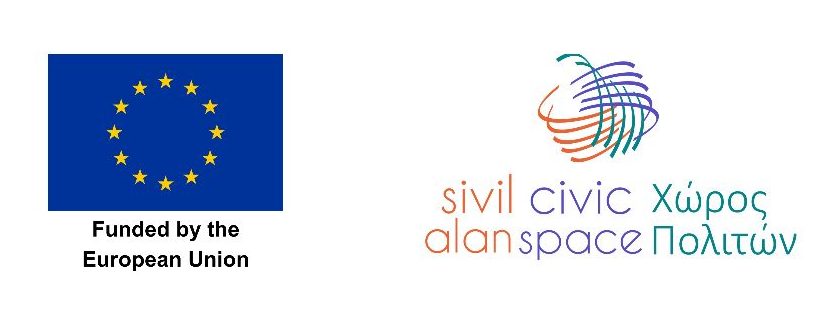Mainstreaming Guidelines
Mainstreaming Guidelines
One of the objectives of the Civic Space Project is to strengthen the capacities of CSOs, and support them in adopting a rights-based approach in their advocacy activities for democratic change, confidence-building measures, and a more enabling environment for civil society.
In this context, a set of guidelines have been developed as a do-it-yourself tool to help CSOs mainstream cross-cutting issues such as accessibility, ecology, gender, rights-based approach and youth. These guidelines aim to promote and support CSOs to mainstream rights-based approach into their policy-making, planning and daily activities. The guidelines were developed through a participatory approach, involving CSOs working on each theme in the drafting process. An advisory group of CSOs was identified for each cross-cutting topic and were consulted at each stage.
The rights-based approach provides a general framework for the implementation of the guidelines prepared as a complementary set of thematic cross-cutting issues. However, each thematic guideline is designed in such a way that it can be used on its own for mainstreaming the issue it addresses.
The guidelines are practical tools that CSOs can use in their operations. The measures included in the guidelines are not intended to be an exhaustive list. Instead, they offer a starting point for CSOs to initiate the essential steps towards mainstreaming the issue they address.
- The Gender Mainstreaming Guideline has been prepared to help CSOs mainstream gender in their fields of work
- The Gender Mainstreaming Guideline has been prepared to help CSOs mainstream gender in their fields of work
- Gender mainstreaming requires the inclusion of a gender perspective across all policy areas, stages and levels of policy-making. The mainstreaming strategy strives to ensure that organisations consider the distinct impacts on women and LGBTI+s at every stage of their organisational policies, activities and projects. It promotes an effort to transform traditional gender roles and promote equality, thereby working towards transforming rather than reinforcing male-dominated norms and traditions.
- You can use this Guideline to increase your capacity to promote gender equality in your organisation and in your work
- Ecology mainstreaming primarily involves the integration of environmental policies into the political agendas, programming and planning, as well as decision-making processes to mitigate human activities that adversely impact the environment while promoting positive outcomes. Environmental protection issues should be incorporated into national, local, and sectoral agendas, and CSOs play a pıvotal role in mainstreaming ecology. Çevrenin korunmasına ilişkin konuları, yerel ve sektörel gündemlere dâhil edilmelidir ve STÖ’ler, ekolojinin ana akımlaştırılmasının kilit aktörleridir.
- By following the steps of ecology mainstreaming, CSOs can make informed decisions about the environment, assess the negative impacts of their organisational activities, adjust their organisational structures to minimise these impacts and advocate for the mainstreaming of ecology. This Guideline is designed for this very purpose, serving as a practical tool for CSOs aiming to mainstream ecology. It includes practical measures on how you can mainstream ecology in your organisation.
- You can use the Ecology Mainstreaming Guideline to increase your organisation's capacity to protect ecology.
- This guideline is designed to show you the measures you should take to start mainstreaming youth in your organisation.
- Youth mainstreaming entails taking into account the strategies for intergenerational equity and justice, enable young people’s capabilities, participation, and human rights to become an integral dimension of the analysis, design, implementation, and monitoring & evaluation of policies and programmes in inter-sectoral planning across all social, political and economic spheres. Youth mainstreaming initiatives should address the problems and perspectives of young people on an equal footing with the problems and perspectives of adults; analyse the needs, problems and demands of young people for solutions with an intersectional approach.
- The Youth Mainstreaming Guideline can be used to enhance your organization's capacity for youth participation and inclusion. The measures presented in the Guideline aim to offer practical suggestions for youth mainstreaming in your organisation.
- Accessibility mainstreaming is a strategy for making disabled people's concerns and experiences an integral dimension of the design, implementation, monitoring and evaluation of policies and programmes in all political, economic and societal spheres so that disabled people benefit equally and inequality is not perpetuated. The ultimate goal is to achieve disability equality.
- You can use the Accessibility Mainstreaming Guideline to increase the accessibility capacity of your organisation.
- The Guideline for Mainstreaming a Rights-Based Approach provides a general framework for the implementation of other thematic cross-cutting guidelines.
- The rights-based approach identifies the rights-holders and duty-bearers for their work. Every human being is a rights holder, and for each right there is a duty bearer who has the responsibility to fulfil that right. Rights holders claim their rights and hold the relevant duty-bearers accountable for their rights.
- Mainstreaming a rights-based approach systematically addresses the responsibilities of duty-bearers and calls them into action. It empowers rights-holders, increasing their capacity to claim their rights; it encourages them to become active citizens and advocate for their rights. The civic engagement with the duty-bearers for the development and better implementation of rights stands as one of the focus areas of mainstreaming the rights-based approach
- You can use this Guideline to strengthen your organisation's capacity to implement the rights-based approach.
The checklists have been prepared to assist CSOs in the assessment of their compliance with the measures specified in the guidelines. The checklists provide an opportunity to assess whether the stipulated measures for each item have been implemented in your organisation.
The ultimate long-term objective of mainstreaming accessibility, ecology, gender, rights-based approach and youth for any organisation is to achieve full implementation of all items on the checklist. However, achieving this goal requires resources, including time, knowledge and expertise. Therefore this process can be structured into short, medium and long-term strategies tailored to each individual organisation.
You can also access the checklists from the section below and evaluate your association in each thematic area.




